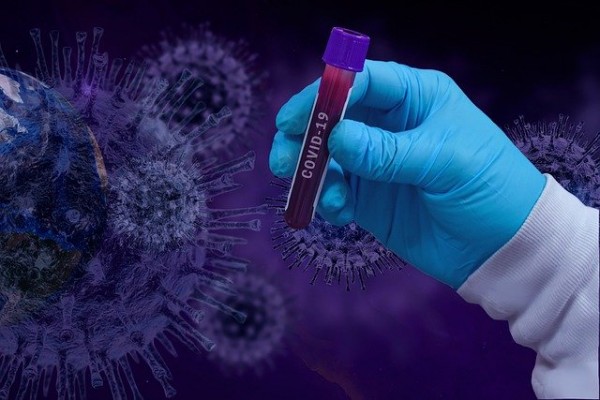COVID-19 Might Be Damaging Bone Marrow Immune Cells

The team investigated more than 100 blood samples from patients with COVID-19 and were admitted to four hospitals within Greater Manchester to look for biomarkers that indicate progression to severe illness at different points in their hospital confinement.
New research by the University of Manchester immunologists at the Lydia Becker Institute recently showed that white blood cells, also known as monocytes released into the blood from bone marrow, have irregular features in COVID-19 patients.
The team from the consortium, Coronavirus Immune Response, and Clinical Outcome or CIRCO, said that such irregularities are greater in people who experience a severe infection.
By identifying it early, the abnormal monocytes doctors may be able to tell who among the patients are more likely to suffer from severe disease.
This research produces the most robust evidence that monocytes may be an important therapeutic target for treatment for COVID-19.
ALSO READ: Bristol Researchers Make Discovery That Could Stop COVID-19
Abnormal Monocytes
The team said it remains unclear if abnormal monocytes are released from the bone marrow or if the changes take place following their entry into the blood.
Nonetheless, treatments that prevent their discharge from bone marrow may help decrease what the immunologists described as "exaggerated immune response" that adds to poor outcomes in individuals who experience severe COVID-19.
This study in Science Immunology is the first to be published by The University of Manchester-based consortium.
Scientists have already known that monocytes, the largest white blood cell type, are an essential component in the lung while there is an infection and play vital roles in the organ's protection and repair.
DON'T MISS THIS: The UK Might Roll Out Antibody Tests With at Least 98% Accuracy by the End of the Year
COVID-19 Patients Studied
The team investigated more than 100 blood samples from patients with COVID-19 and were admitted to four hospitals within Greater Manchester to look for biomarkers that indicate progression to severe illness at different points in their hospital confinement.
According to Lydia Becker Institute deputy director and senior author on the study, Dr. John Grainger, their work highlights once again the importance of the innate immune system in COVID-19.
He added that they are excited to be able to finally share the results of this research with the hope that it could better inform treatments for this devastating disease.
Based on the study, in total, 73 COVID-19 patients were signed up, and 49 were said to be stratified for maximum disease severity.
Six patients were not included because of an alternative diagnosis in two patients, unknown findings with negative results in two patients for their SARS-CoV-2 nasopharyngeal test, or a confounding acute disease diagnosis in two other patients.
According to the study, two patients could not be stratified for the severity of the disease because of insufficient clinical observation data, and 16 more patients were not stratified since recruitment took place more than seven days from their hospital admission.
The CIRCO consortium pulls together expertise in immunology from the Lydia Becker Institute with research nurses and clinicians at Wythenshawe, Salford Royal, North Manchester, and Manchester Royal NHS Trusts.
It was formed during the first wave of COVID-19 to collect longitudinal samples from patients who were diagnosed to have COVID-19, examining their immune reaction from their admission to the hospital through to outcome.
IN CASE YOU MISSED THIS: Tricare Issues an Apology Statement After Telling 600k Beneficiaries They've Had COVID-19.
Check out more news and information on the COVID-19 and Dengue on MD News Daily.
Sep 23, 2020 10:53 PM EDT





